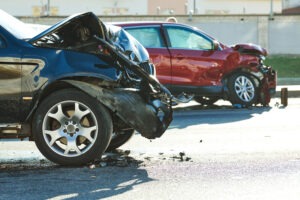
Car accidents can result in significant physical, emotional, and financial damages. When pursuing a personal injury claim or reaching a settlement after a car accident, it is essential to understand the potential tax implications of the settlement amount.
Many individuals wonder whether car accident settlements are taxable or if they can receive the compensation tax-free. Find out if they are and how a Connecticut car accident lawyer can assist you.
Taxability of Car Accident Settlements
The taxability of car accident settlements depends on the nature of the damages awarded and the case’s specific circumstances. Compensation for physical injuries or sickness resulting from a car accident is non-taxable.
This includes amounts awarded for medical expenses, pain, suffering, lost wages, and other damages directly related to the injuries sustained.
Physical Injuries and Emotional Distress
When a car accident settlement is allocated for physical injuries, such as broken bones, whiplash, or traumatic brain injuries, it is typically not taxable. The Internal Revenue Service (IRS) considers these damages as compensation for personal injuries, and as such, they are not subject to federal income tax.
It is important to note that emotional distress damages stemming from physical injuries are generally treated the same way. If the emotional distress is directly linked to and caused by physical injuries, the compensation received for emotional distress would also be non-taxable. A car accident lawyer in Middletown can help you navigate your potential tax liabilities.
Punitive Damages
In some car accident cases, punitive damages may be awarded. Punitive damages punish the defendant for their reckless or intentional actions.
Unlike compensatory damages for physical injuries, punitive damages are generally taxable. The IRS considers punitive damages as income subject to federal income tax.
Lost Wages and Income Replacement
Compensation for lost wages or income replacement due to a car accident is taxable. They should be reported on your federal income tax return. Your car accident lawyer can help you determine your potential tax liability.
Connecticut Law and Taxation of Car Accident Settlements
Connecticut follows federal tax guidelines when it comes to car accident settlements. Generally, damages received for personal physical injuries or physical sickness resulting from a car accident are not subject to state income tax in Connecticut.
Suppose your car accident settlement is allocated for medical expenses, pain and suffering, or other damages directly related to your injuries. In that case, you will not owe state income tax on those amounts.
However, consulting with a tax professional or attorney is essential to ensure Connecticut state tax laws compliance. Specific circumstances or types of damages could be subject to state income tax, such as punitive damages or compensation for lost wages.
Structured Settlements and Annuities
Car accident settlements may sometimes be structured as periodic payments or annuities rather than lump sums. Structured settlements can provide long-term financial security and may offer tax advantages. Your Bristol car accident lawyer can help you decide on which settlement structure is best.
When structured settlements are properly arranged, the income received from these payments may be tax-free. However, consulting with a tax professional or financial advisor is crucial to understanding the tax implications and structuring the settlement appropriately and thoroughly.
Reporting Car Accident Settlements
If you receive a car accident settlement that includes taxable amounts, it is important to report the income accurately on your federal and state income tax returns. You may receive a Form 1099-MISC or a Form W-2G from the insurance company or defendant reporting the taxable portion of the settlement.
It is crucial to keep thorough documentation and consult with a tax professional to ensure compliance with reporting requirements.
Conclusion
Generally, car accident settlements allocated for physical injuries or sickness are not taxable at the federal level. This principle also applies in Connecticut, where damages received for personal physical injuries resulting from a car accident are generally not subject to state income tax.
However, there are exceptions, such as punitive damages or compensation for lost wages, which may be taxable. It is essential to consult with a tax professional or attorney and your Vernon car accident lawyer to fully understand the tax implications of your car accident settlement and ensure compliance with federal and state tax laws.

